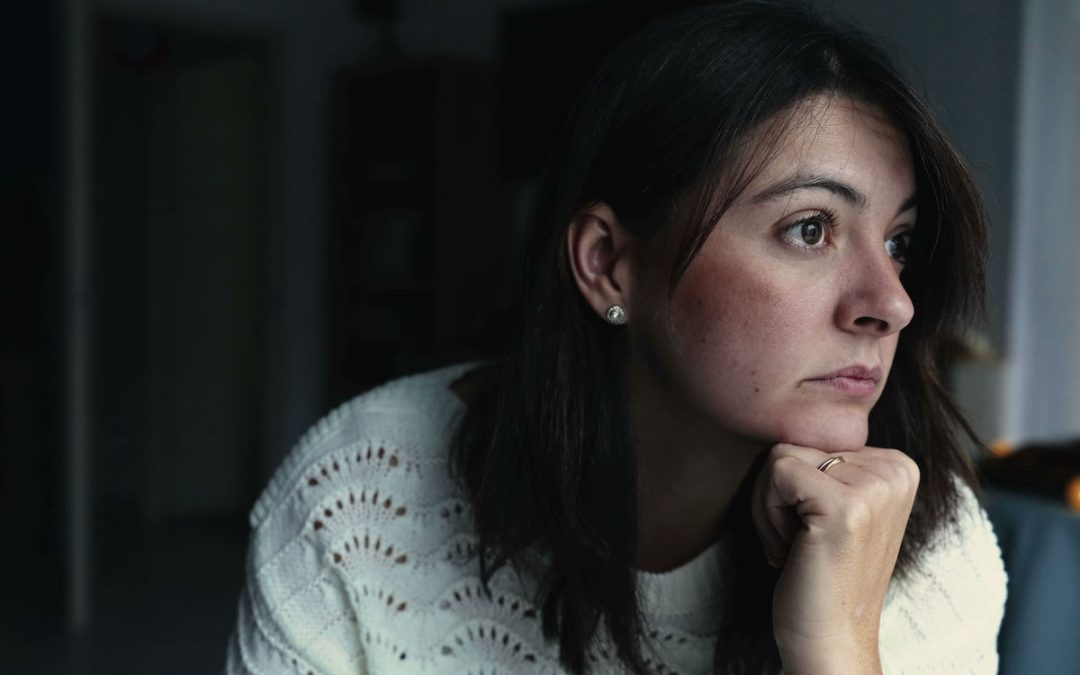Quick Summary
Intensive mental health treatment becomes necessary when suicidal thoughts, self-harm, inability to manage daily routines, severe mood swings, psychosis, or worsening symptoms despite outpatient therapy occur.
Early recognition and intervention prevent symptoms from escalating and lead to better outcomes for how people feel and function.
Treatment options include 24-hour inpatient care for acute crisis, Partial Hospitalization Programs for structured daytime support, and Intensive Outpatient Programs that allow flexibility for work or school while providing several therapy sessions per week.
Key Takeaways
- Watch for clear warning signs including suicidal thoughts, self-harm behaviors, inability to maintain work or school attendance, loss of personal hygiene routines, severe mood swings, hallucinations, paranoia, or delusional thinking that signal the need for immediate structured support.
- Evaluate whether current outpatient therapy is working by tracking crisis calls, emergency room visits, or escalating distress, as these patterns indicate the need to step up to a higher level of care before reaching a breaking point.
- Consider Partial Hospitalization Programs or Intensive Outpatient Programs as alternatives to full hospitalization, offering structured daytime care or multiple weekly therapy sessions while allowing individuals to return home and maintain some daily responsibilities.
- Approach conversations about treatment with empathy by sharing specific behavioral observations without judgment, offering to help research care options, and framing professional evaluation as a responsible step toward stabilization and recovery.
Understanding the Need for Intensive Mental Health Treatment
Recognizing the signs that someone may need inpatient mental health treatment or intensive mental health care can be overwhelming for families. Many people try to manage symptoms on their own or through weekly therapy, unsure of when it might be time to seek a higher level of care. The truth is that early recognition can prevent symptoms from worsening.
SAMHSA notes that treatment for mental illness is effective, and getting help earlier often leads to better outcomes for how people feel and function. There are multiple levels of mental health care in Marin that provide structured support at different intensities. When you feel it’s time for intensive treatment, it is important to know where to go.
Rosebay Behavioral Health is here to guide individuals and families in Marin County and the Bay Area through this difficult decision-making process.
Why Recognizing the Signs of Severe Mental Health Symptoms is Important
Delaying treatment often leads to more serious consequences. Families may wait until a loved one is in crisis, such as after a suicide attempt or hospitalization, before pursuing help. By that point, symptoms are often more severe and recovery can be more challenging.
Taking action earlier gives individuals the chance to stabilize before reaching a breaking point. It also reassures families that their loved one is receiving appropriate care. For example, inpatient solutions for severe mood disorders can provide stability when outpatient care falls short.
Key Signs Intensive Treatment May Be Needed
Suicidal Thoughts or Self-Harm
If someone is expressing thoughts of ending their life, making plans to harm themselves, or engaging in self-harm, it is a clear sign that more immediate and structured support is needed. This situation should never be ignored.
Inability to Function in Daily Life
Struggling to maintain basic routines like going to work or school, managing responsibilities at home, or even taking care of personal hygiene can signal that outpatient care may not be enough. When day-to-day life becomes unmanageable, a more intensive level of care can provide the stability that is missing.
Severe Mood Swings or Psychosis
Intense mood changes, paranoia, hallucinations, or delusional thinking are major warning signs. A loved one may suddenly behave in ways that feel frightening or unpredictable. For example, someone may begin hearing voices, expressing paranoid thoughts, or experiencing extreme manic energy that disrupts relationships and daily life. These symptoms, including those seen in schizophrenia, can place both the individual and others at risk if not addressed in a safe, structured setting.
Rapid Decline Despite Outpatient Therapy
Sometimes, symptoms worsen even with consistent outpatient therapy and medication. Frequent crisis calls, emergency room visits, or escalating distress despite professional support suggest that the current level of care is not sufficient.
Drug-Induced Psychosis
In some cases, drug or alcohol use can trigger severe psychiatric symptoms, including hallucinations, paranoia, or delusional thinking. Rosebay provides specialized drug-induced psychosis treatment, focusing on stabilizing symptoms and addressing the underlying mental health condition.
Levels of Intensive Mental Health Treatment
Intensive treatment includes a range of care levels that go beyond traditional outpatient therapy.
- Inpatient treatment provides 24-hour support for those in acute crisis, offering stabilization in a safe environment.
- Partial Hospitalization Program (PHP) allows individuals to receive structured daytime care while returning home in the evenings.
- Intensive Outpatient Program (IOP) involves several therapy sessions per week, supporting recovery while still allowing time for school, work, or family responsibilities.
Seeking intensive treatment does not always mean entering a hospital. These options provide flexibility while ensuring the right level of structure and support.
How Families Can Respond with Compassion
If you are concerned about a loved one, approach the conversation with empathy and care. Avoid judgmental or minimizing language. Instead, share what you have noticed and express your concern.
For example, you might say, “I’ve noticed you’ve been sleeping most of the day and missing work. I care about you, and I think getting more support could really help.”
It can also help to remind your loved one that seeking treatment is a responsible step toward recovery. Encourage them to get a professional evaluation rather than waiting for symptoms to get worse.
Support Through Rosebay Behavioral Health
Rosebay Behavioral Health offers a continuum of care for individuals in Marin County who need more than outpatient therapy, including inpatient treatment, a Partial Hospitalization Program (PHP), and an Intensive Outpatient Program (IOP). These programs are designed to support individuals facing conditions such as:
- Depression treatment
- Bipolar disorder treatment
- Schizophrenia treatment
- PTSD treatment
- Anxiety treatment
- OCD treatment
- Impulse control treatment
- Personality disorders
- ADHD treatment
The National Institute of Mental Health notes that psychotherapy can be used on its own or alongside medication, and the right approach should be tailored to each individual’s needs. Each treatment plan at Rosebay combines evidence-based therapies and holistic approaches, including:
- CBT therapy
- DBT therapy
- Family therapy
- Group therapy
- Trauma-informed care
- EMDR
- Somatic experiencing
- Holistic therapy
In addition to primary treatment, Rosebay provides wellness services that address long-term recovery. The transition from inpatient to PHP to IOP is carefully managed to give individuals ongoing stability and reduce the risk of relapse. This continuum of care ensures that every step forward is supported and sustainable.
At Rosebay, the focus is on compassionate care that empowers each person to move toward long-term recovery and well-being.
How to Seek Intensive Mental Health Treatment in Marin County
If you or someone you love is showing signs that more support is needed, addressing concerns early can make recovery more effective. Rosebay Behavioral Health in Marin County provides comprehensive, compassionate care for individuals who need more than outpatient support. Our team is here to guide you and your loved ones toward stability and lasting wellness.
Our San Anselmo center serves individuals across Marin County, while our San Francisco location connects care to the broader Bay Area. You can view all locations or contact us today to learn more.
Before you reach out, you may still have questions about what intensive treatment involves and how to know if it is the right step for your loved one.
FAQs
What are the most common signs that someone needs inpatient mental health care?
Some of the clearest signs include suicidal thoughts or behaviors, an inability to function in daily life, severe mood swings or psychosis, a rapid decline despite outpatient care, and drug-induced psychosis.
Does needing intensive treatment mean my loved one will be hospitalized?
Not always. While inpatient care is sometimes necessary, many individuals benefit from structured alternatives such as partial hospitalization or intensive outpatient programs. These options provide flexibility and strong support without requiring a hospital stay.
How do I talk to a loved one about seeking higher-level care?
Approach the conversation with compassion and without judgment. Use gentle observations, such as noting changes in behavior, and express your care and concern. Offering to help research options or attend an appointment can make the process less overwhelming.
What mental health conditions typically require intensive treatment?
Conditions such as major depression, bipolar disorder, schizophrenia, PTSD, severe anxiety, OCD, and impulse control disorders often require structured care.
How quickly can someone begin treatment at Rosebay Behavioral Health?
Admissions staff can often schedule an evaluation promptly to determine the most appropriate level of care. The goal is to connect individuals with the support they need as quickly as possible.








